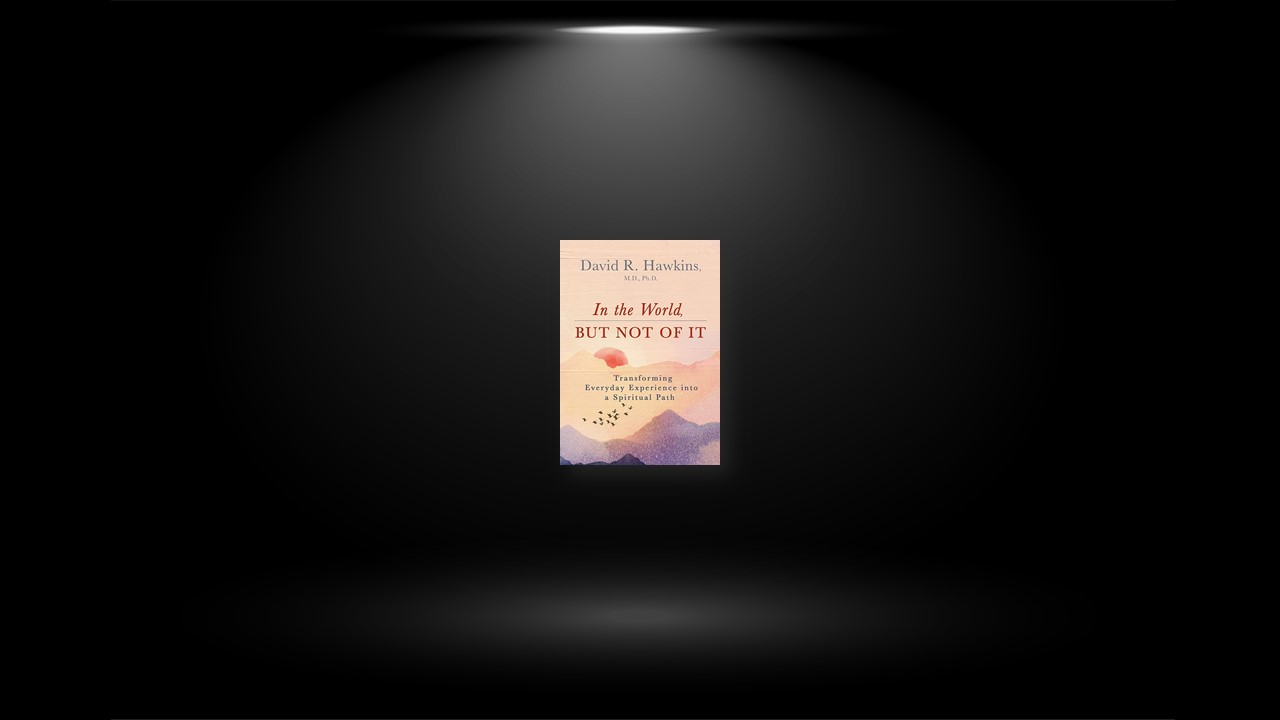The Spiritual Pathway
Jesus said to wear the world like a light garment. In other words, you notice it, you experience it, but it is not your ultimate destination—it’s only transitory. The idea is to not sacrifice the soul for the mortal body. There is far more than this earthly life.
In today’s world, we see how spiritual teachers have a higher level of consciousness. The head of the Catholic Church, Pope John Paul [II], calibrated on the Map of ConsciousnessTM at about 565, a level associated with joy and peace. Similarly, the Dalai Lama calibrates around 570. They’ve achieved that level due to a lot of internal, spiritual, and religious training. They radiate goodwill toward others.
The Challenges of the Spiritual Pathway
The difficulty is we’re all dealing with a shared level of consciousness as well as our own individual levels. The collective level of consciousness goes up and down. Meanwhile, the problems remain the same. We continue to have the same obstacles to enlightenment, only modern man is at a greater disadvantage than before because of external forces. Programming by falsity is near constant. Just look at the way a commercial is put together: the rate of speed of the change of the images, and the subliminal programming. They show you the car and then they immediately show you an attractive person. They try to combine desire with lust and collapse several instinctual drives into one. The advertising for many products is weak. If you calibrate it, you’ll see that not only does it not attract the view, it actually causes aversion.
Raising Your Consciousness Level
Interestingly, your happiness is not directly related to the external world at all. It’s related to your inner level of consciousness. We see this in people who win the lottery and become multimillionaires overnight. Often, when people experience sudden fame and fortune and are unprepared for it, it destroys their happiness.
The correlation between happiness and level of consciousness is almost 100 percent. At certain levels of consciousness, it doesn’t matter where you are, you’re going to be happy and gratified, no matter what’s going on. Your happiness is not dependent on external forces. You’ve stopped placing importance on the external, the fame, the glamor.
When you don’t need fancy titles and money and all these other things, then you’re no longer run by them, and you begin to value other things. You’re able to love everyone, no matter what. You allow yourself to love everyone equally. As your consciousness advances, you can see what motivates people—it becomes very transparent; and the funny thing is, often what they say and the impression they’re trying to make is in direct contrast to what they are really up to. It gets increasingly harder to deceive a person who is relatively enlightened.
Advanced states of consciousness often occur spontaneously. You’re walking through the woods and suddenly you stop and realize the beauty of the trees and the birds singing. The intrinsic beauty of nature shines forth. If you’re fortunate, you see the sacredness of it—you see that all existence is sacred. Each tree is conscious and aware of your presence, and realizes that God is walking by. It’s aware of this on a certain level; it’s aware on the vegetative level but there is the knowingness of it, because the infinite knowingness of divinity is intrinsic with all that exists.
Obstacles to Raising One’s Level of Consciousness
Consciousness levels below 200 are antitruth. They’re only interested in their own view of the world and justifying it. But as you become more evolved, you become detached; you don’t invest your emotions in being right or wrong.
Many people are so narcissistic that they cannot put their own preferences aside long enough to find out what the truth is. You can’t really calibrate levels of truth if your own consciousness is below 200. In fact, the higher it is, the greater the accuracy. This research was conducted by colleagues of ours who found that the higher the level of consciousness, the greater the percentage of truthfulness of the response to the muscle test. The best range is in the 400s. The 400s is the level of intellect, truth, and logic. A person who’s in the 400s is more likely to be motivated to understand the truth. They’re less driven by ego and emotion.
If you’re a scientist doing an experiment, this is not the place for emotion. “I want these bacteria to be gram positive instead of gram negative!” Sounds absurd, doesn’t it? The trained person has learned how to ignore emotion and find out through logic.
So truth is one thing, and the position that people take about the truth is another. You can disagree with it, but that has nothing to do with the truth. Let’s say you bought a certain stock, and it went down. It wasn’t right—it was supposed to go up!
The absolute says that there is a reality that is beyond subjectivity. To the relativist, the idea that there’s a truth beyond your person ego is an anathema, because the relativist is based on narcissism. As you get more evolved, the conscience becomes more predominant and you can’t fool yourself or others anymore. Up to a certain point, lying doesn’t bother you as long as you have a gain, but then lying starts to bother you. You eventually reach a point where lying to yourself is an anathema. You might still be right to lie to others, but you’re not going to lie to yourself.
Quieting the Mind with Meditation and Contemplation
Meditation serves a powerful purpose because of the intention and discipline we bring to it. Meditation also consumes our time and space. Contemplation, on the other hand, is more a way of being in the world and experiencing openness. Meditation takes you out of the world. You can’t be playing with the kids or mowing the lawn, so meditation is a formal discipline.
Contemplation is a sort of a semimeditated state. You watch everything from a somewhat detached state because you become the witness instead of the subject of phenomena. It takes you out of the field, so you’re no longer the star of what’s happening.
Let’s say we’re sitting here right now. Well, for us to sit here, we have to get born. For us to get born, we have parents. There are millions of options that would’ve had to have taken place. Millions of phenomena have to occur to account for even the smallest event—a piece of dust going through the air.
People ask, “What is the cause of this little piece of dust floating in front of my eyes?” There are millions of factors to account for why this piece of dust, right now in this room, is moving at this rate of speed, under this atmospheric pressure and wind speed, under these temperatures, and so on. It’s not possible for the human mind to discern the actual true cause of a thing. So eventually you surrender, you find your humility in all of existence.
After doing this for a while, you learn how to be with what’s happening around you while maintaining a contemplative awareness. You’re aware that you’re hustling and bustling, but the real you is not really hustling and bustling—the real you is witnessing the hustling and bustling. Of course, you know the mind thinks it must get all this done, and you can laugh at the mind and say, Mind, sit down a second. I know you feel you must get this all done by 10:00 or else the world will come to an end. You learn how to joke with yourself.
As a person becomes more spiritually aware, life becomes more lighthearted and less serious, even humorous at times. Being able to laugh at oneself in a loving manner is a definite blessing along the way.


